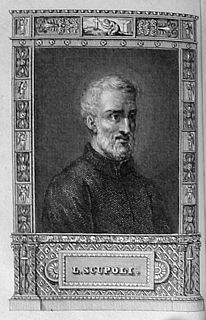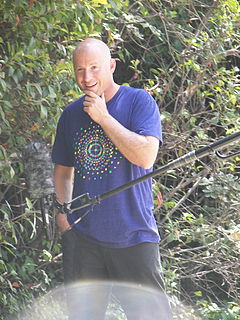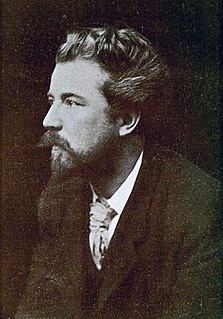A Quote by Friedrich Nietzsche
He who does not desire much more from things than knowledge of them easily makes peace with his soul.
Related Quotes
My desire for knowledge is intermittent; but my desire to bathe my head in atmospheres unknown to my feet is perennial and constant. The highest that we can attain to is not Knowledge, but Sympathy with Intelligence. I do not know that this higher knowledge amounts to anything more definite than a novel and grand surprise on a sudden revelation of the insufficiency of all that we called Knowledge before,—a discovery that there are more things in heaven and earth than are dreamed of in our philosophy.
Watch yourself with all diligence, lest the enemy steals near and robs you, depriving you of this great treasure, which is inner peace and stillness of soul. The enemy strives to destroy the peace of the soul, because he knows that when the soul is in turmoil it is more easily led to evil. But you must guard your peace.
Men seek retreats for themselves, houses in the country, sea-shores, and mountains; and thou too art wont to desire such things very much. But this is altogether a mark of the most common sort of men, for it is in thy power whenever thou shalt choose to retire into thyself. For nowhere either with more quiet or more freedom from trouble does a man retire than into his own soul.
Therefore, doing the Stations of the Cross was still more laborious than consoling, and required a sacrifice. It was much the same with all my devotions. They did not come easily or spontaneously, and they very seldom brought with them any strong sensible satisfaction. Nevertheless the work of performing them ended in a profound and fortifying peace: a peace that was scarcely perceptible, but which deepened and which, as my passions subsided, became more and more real, more and more sure, and finally stayed with me permanently.
What is a Poet? He is a man speaking to men: a man, it is true, endued with more lively sensibility, more enthusiasm and tenderness, who has a greater knowledge of human nature, and a more comprehensive soul, than are supposed to be common among mankind; a man pleased with his own passions and volitions, and who rejoices more than other men in the spirit of life that is in him; delighting to contemplate similar volitions and passions as manifested in the goings-on of the universe, and habitually impelled to create them where he does not find them.
Without the power of intelligence there is no capacity for spiritual knowledge; and without spiritual knowledge we cannot have the faith from which springs that hope whereby we grasp things of the future as though they were present. Without the power of desire there is no longing, and so no love, which is the issue of longing; for the property of desire is to love something. And without the incensive power, intensifying the desire for union with what is loved, there can be no peace, for peace is truly the complete and undisturbed possession of what is desired.
Keep the extent of your abilities unknown.The wise man does not allow his knowledge and abilities to be sounded to the bottom, if he desires to be honored at all. He allows you to know them but not to comprehend them. No one must know the extent of his abilities, lest he be disappointed. No one ever has an opportunity of fathoming him entirely. For guesses and doubts about the extent of his talents arouse more veneration than accurate knowledge of them, be they ever so great.
What then, is correctness of speech but the maintenance of the practice of others, as established by the authority of ancient speakers? But the weaker men are, the more they are troubled by such matters. Their weakness stems from a desire to appear learned, not with a knowledge of things, by which we are edified, but with a knowledge of signs, by which it is difficult not to be puffed up in some way; even a knowledge of things often makes people boastful, unless their necks are held down by the Lord's yoke.
We often see people every day searching in the wrong places for the things they desire. Too many of our fellow humans try to find peace and happiness in drugs, alcohol, and sensual excitement. And it doesn't work. If we desire peace, the first place to look is within ourselves. Peace isn't an external condition as much as an internal context.








































